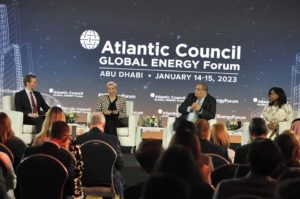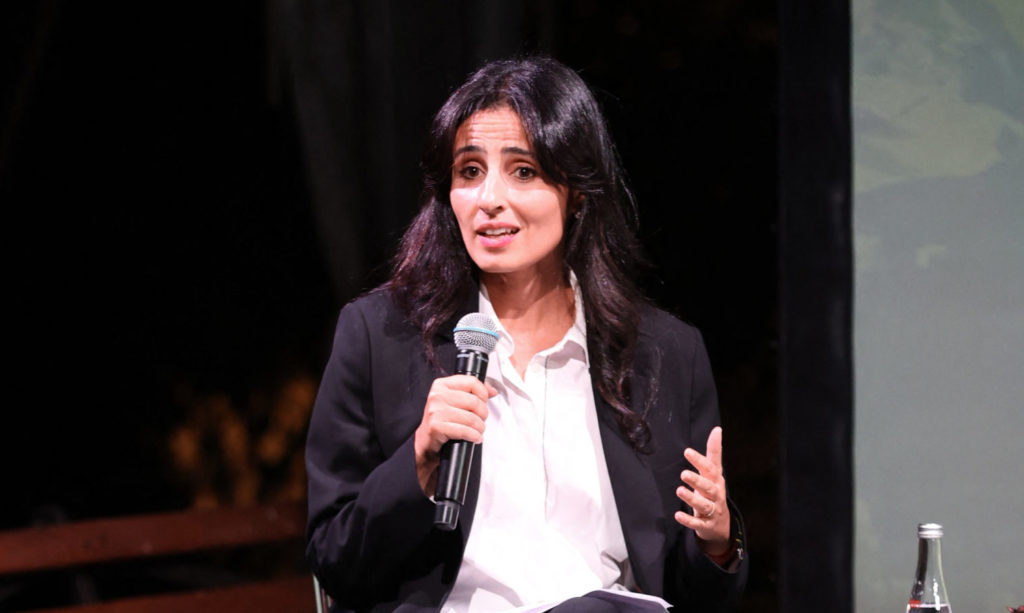Cairo – The United Arab Emirates announced Razan Al Mubarak, current president of the International Union for Conservation of Nature (IUCN), as the climate change high-level champion from the Presidency of UNFCCC COP28, the next United Nations Conference on Climate Change. The decision was publicized in a decree signed by Sheikh Mansour bin Zayed Al Nahyan, deputy prime minister and minister of Presidential Affairs of the UAE.
The Gulf country will host COP28 from November 30 to December 12, 2023, at Expo City Dubai. The first high-level sessions are occurring this week in Abu Dhabi in preparation for the country to host the upcoming conference, based on the results of the UNFCCC COP27, with substantial Egyptian participation.
Mahmoud Mohieldin was the climate change high-level champion of the Egyptian presidency of COP27 and the United Nations special envoy on financing the 2030 agenda for sustainable development. He expressed his hopes for the development of constructive and fruitful cooperation with Razan Al Mubarak to bring together the necessary conditions to achieve tangible progress in the efforts of non-governmental parties regarding climate issues on the international framework, especially in financing and new investments in the areas of mitigating effects and adapting to climate change.
Read also:
Yasmine Fouad, minister of the Environment of Egypt, ministerial coordinator, and envoy of COP27, participated in the first high-level session to prepare for the transition from COP27 to COP28. The meeting focused on critical issues regarding the outcomes of COP27 and pathways to progress toward the next climate conference.
The Egyptian minister emphasized the importance of the upcoming COP28 as pivotal for achieving the global adaptation goal. In line with the global financing and monitoring goals, she agrees the governance of the Loss and Damages Fund was the most crucial outcome of COP27, which developing countries had been waiting for for 30 years.
The minister of the Environment explained Egypt adopted a series of inclusive measures at COP27, starting with the allocation of a World Youth Forum session to discuss youth ideas to face the effects of climate change. On occasion, the country also facilitated the participation of local civil society organizations and other African countries in the blue zone of the conference, with a focus on expanding the green zone of the host country.

Fouad highlighted constructive efforts to build on what was successful at the last climate conference in preparation for COP28. She focused on issues of food security and female and youth empowerment, emphasizing the global goal of adapting, updating, and following up on national contribution plans in line with the 2015 Paris Agreement.
The Egyptian minister highlighted the multilateral actions’ effectiveness and presented some initiatives launched during the event in Egypt, including for the fair energy transition for Africa. The plan focuses on technology transfers and financing access to clean electrical power.
Fouad stated the fair energy transition relies on changes in culture and concepts of societies and access to financing and technology. She emphasized the transition from traditional to non-traditional patterns of new and renewable energies generates opportunities by creating green jobs.
Translated by Elúsio Brasileiro




